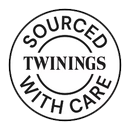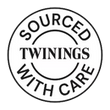News
WaterAid in Darjeeling

In partnership with WaterAid and their implementing partners, we have been working in Darjeeling, in North East India, on expanding access to safe and sustainable water, sanitation and hygiene (WASH) services.
Through our Twinings Community Needs Assessments (TCNAs), we identified access to water was an issue in Darjeeling, due to the mountainous terrain and lack of proper infrastructures. Since 2019 we’ve been working together, with WaterAid, to transform the lives of 4,000 community members living in tea gardens
Interventions have focused on access to water and sanitation within the whole population of the villages targeted with hygiene awareness messaging. The project has been working with schools and communities to improve access to clean water, decent toilets, and good hygiene – including menstrual health management for marginalised women and girls .


Access to Water and Sanitation
Until a few years ago, the sight of people carrying heavy 20 litre drums of water to their homes from springs a few 100 meters below community members’ villages was common in the tea growing regions of Darjeeling. Villages would depend upon one water source. Narrow dirt paths to springs, were a steep, sometimes dangerous, walk downhill. During the rains, paths would get slushy and slippery. When springs were open and unprotected, water would get muddy and contaminated.
Due to the hilly topography of Darjeeling, improved piped water supplies were needed. We worked together to install well-maintained piped water supply systems, with springs protected from contamination thus providing clean, easily accessible water.
Hygiene Awareness messaging
It’s not just infrastructure that’s important. Access to water and sanitation facilities must be coupled with education and training sessions to ensure good hygiene practices, like handwashing and menstrual management, are upheld long term.
Regular hygiene sessions were conducted with tea workers in the workplace, at the community, in schools. Awareness sessions on safe water, sanitation and hygiene was specifically conducted with a total of 194 workers.
The awareness sessions also covered topics on nutrition and solid waste management, where the importance of hand washing in the context of COVID-19 was also stressed upon. Tea estate management also attended some of the awareness sessions that were conducted and videos and posters on WASH were developed and shared with the community to widen the impact of these sessions.
Hygiene messaging was delivered through wall paintings which contain messages on the eight steps of proper handwashing at critical times which were painted near the handwashing stations in all four schools. These messages will help to reinforce the health and hygiene sessions delivered to the children and prompt good practices by encouraging them to remember and learn. Wall paintings on menstrual health and hygiene were also completed in the Model English School displaying the menstrual cycle, problems related to disposal of sanitary plastic pads and safe and hygienic ways to manage menstruation.


Menstrual health management
In the communities where we have been working, there are cultural taboos associated with menstruation. Menstruating women were not allowed to go to the temple or perform certain religious duties. Also, there was an overwhelming sense that menstruation was dirty and had to be kept hidden. The project has been working to break these taboos and share important information on menstrual health.
Meet Mamta.
Every day at 4:30 pm, Mamta returns home after a day of tea plucking. A bright smile on her face, she stops to chat almost on every doorstep she passes. “They all know me,” she says. “I talk to all my neighbours about sustainable menstrual health management practices. And they often come to me for advice…” Mamta is a Peer Educator in her village and has undergone training and workshops on menstrual health management as part of our WaterAid partnership.
“I have personally learnt so much from these trainings!” she exclaims. “I think the biggest learning has been that so many women’s problems like excessive bleeding, cramping and white discharge can be so easily treated with medicine — if only women would talk about them openly! I feel my biggest job has been to normalise talking about menstruation and reproductive health problems in my community!”
Thanks to Peer Educators like Mamta, more women have a greater understanding of menstrual health and have the confidence to speak up about any problems they may be facing.
All photograph credit: WaterAid/ Ranita Roy

